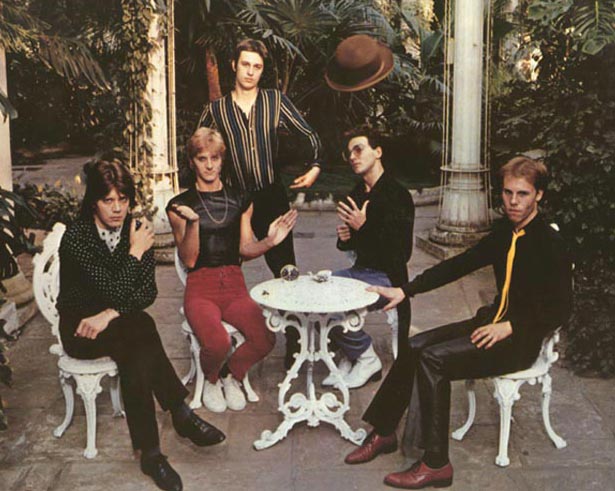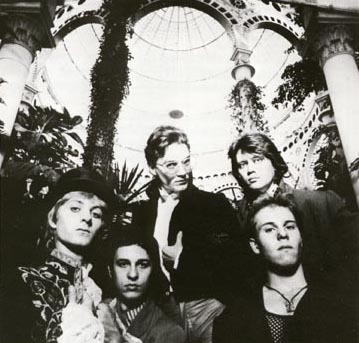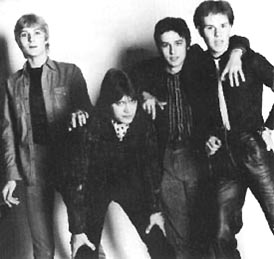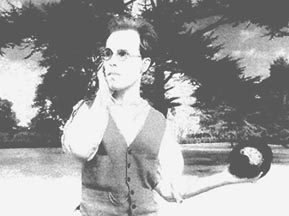|

|
|

|

|
|
One of Thomas Dolby's first widely-known professional gigs was playing
keyboard for Bruce Woolley and The Camera Club, originators of the
song 'Video Killed the Radio Star' (later to be remade by The Buggles,
as MTV's first video ever played). After the release of "English
Garden" Thomas left Camera Club to pursue a less establishment-oriented
direction - joining artist Lene Lovich's tour for a brief period,
and writing her hit single 'New Toy'. His keyboard and synth playing
was in great demand with other acts as well, leading to studio sessions
work with Foreigner, Joan Armatrading, Kevin Armstrong and Local Heroes,
and Girls at our Best. Thomas maintained a working relationship with
former Camera Club bandmate Matthew Seligman, who would later work
with Thomas on his first solo album, "The Golden Age of Wireless"
and would remain a vital collaborator in Thomas' live shows and other
recorded efforts in the early 1980's.
|
|
From the New Music Express Interview 31st October 1981 |
|
On joining Camera Club: "When I first started writing songs, they were more like sketches so I wanted to work with people like Bruce who had a lot of skill." On his own various releases: 'Urges': "It's about the illusions surrounding nightclubbing and being a victim of those. it's as if there's a conspiracy to make you feel everyone but you is going out and having fun and meeting people of the opposite sex. It's also a song about dancing." 'Leipzig': "...satirises the time when it was trendy for pop stars to go and pose around Berlin." 'Therapy/Growth': "I don't like people who seek the truth in a big mystical way or the commercial exploitation of this with gurus and all that." 'Europa and the Pirate Twins': "It's about a girl I knew when I was young, and the next thing I knew was when she'd become a model and actress. The song is a romaticisation of the truth using a fairy tale atmosphere with parallels worked in - me as England, her as Europa." |
Using the 'scientific' image to reflect his own personality: "I'm into the artistic side of science; it captures my imagination, not statistics and facts but surprising physical properties like what makes the sky blue. I'm not into invisible things like alkaline or the theory of inertia and other abstract processes. Actually, if you play the piano it's quite mathematical but very physical, graphic - the shapes you form with the keys." Thomas sees analogies between the mechanical workings of the piano (wherein the player touches the keys, but the levers and hammers inside actually produce the sound), and the microcomputer (which Thomas had recently begun using more than conventional synths). On the modern development of music through digital synthesis: "The microcomputer is the ultimate sound shaping tool. It's a whole new way of approaching music; you can shuffle things around endlessly. In a way it's like arranging for a small orchestra, then delivering the ultimate performance at a blow." On his attempts to gain the Venice in Peril committee's permission to use their name for his new record label: "They're worried I'm the Sex Pistols and that I might bring their operation into disrepute." |
|
|
|
links |
|
1984 - Thomas Dolby in Los Angeles,
"The Flat Earth" US tour continues
|
|
1985 - Thomas Dolby with Ryuichi Sakamoto
|
|
1986 - Thomas Dolby,
collaborations with Joni Mitchell, work on film scores
|
|
1988 - Thomas Dolby, Mike Kapitan,
"Aliens Ate My Buick" and the Lost Toy People
|
|
1992 - Thomas Dolby, the making
of "Astronauts and Heretics"
|
|
|
|
|
|
|
